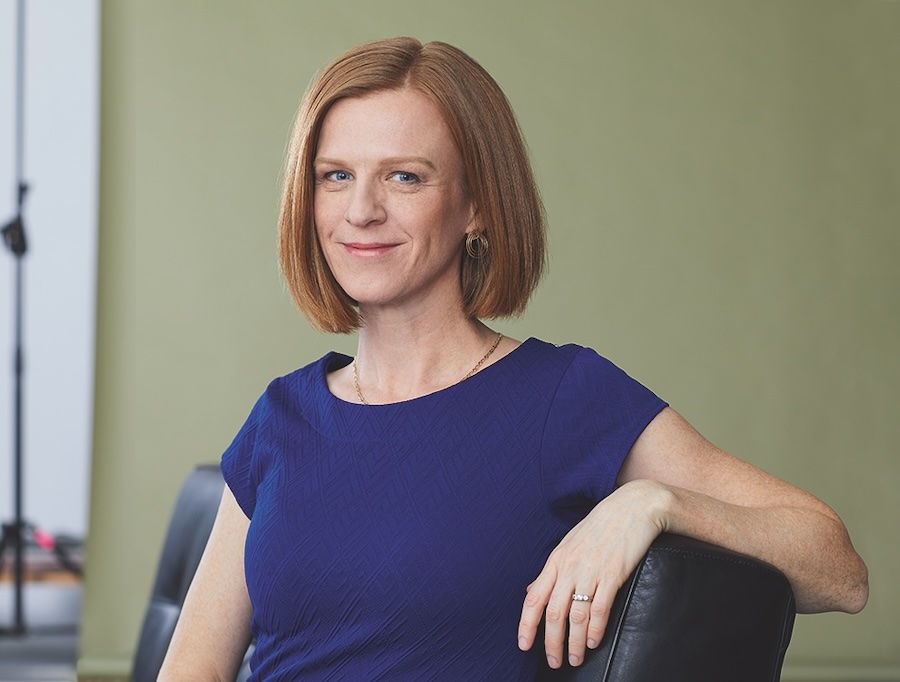Back in August 1977, Ohio State University’s Big Ear radio telescope picked up a 72-second signal that seemed to come from the Sagittarius constellation. Astronomer Jerry Ehman spotted the anomalous sequence “6EQUJ5” on the printed data, circled it in red and wrote “Wow!” in the margin. It became known as the “Wow! signal.” Some still consider it the most hopeful sign of extraterrestrial communication detected to date.
The human desire to discover if we’re alone in the universe has only intensified in the years since. In Broadview’s July/August cover story, author David Wilson illustrates how the search for life beyond our solar system is gaining mainstream legitimacy. And that search is leading to philosophical questions about how finding ETs could forever change what it means to be an Earthling.
I love grappling with these questions and the ones that immediately follow: If we find intelligent alien life, should we try to communicate with it? How would we do that, and what would we say? Who would make these decisions on behalf of eight billion of us?
More on Broadview:
-
Exploring the new wave of ‘cli-fi,’ where climate catastrophe meets fiction
- Making sense of solar eclipses through ancient superstitions
Sci-fi writers and movie makers have had a heyday with these quandaries. In Denis Villeneuve’s 2016 film, Arrival, octopus-like aliens touch down on Earth, and linguistics professor Louise Banks (Amy Adams) must find a way to read their inkblot communications. Banks succeeds, but confusion over whether the aliens are saying “tool” or “weapon” launches a global frenzy of terror. A shared vocabulary is one thing; meaning is quite another.
In this year’s Netflix series 3 Body Problem, humans have sent signals into the universe and aliens are responding. In one plot twist, the relationship between human and alien takes a turn when the aliens can’t distinguish between a fairy tale’s moral “truth” and the “lie” that is fiction — mistrust, fear and more violence result.
Back in real life, many astronomers oppose any attempt to tell extraterrestrials we’re here. As physicist Stephen Hawking once said: “If aliens visit us, the outcome would be much as when Columbus landed in America, which didn’t turn out well for the Native Americans.”
But the search continues, and the SETI (Search for Extraterrestrial Intelligence) Institute is devising experiments aimed at testing the assumption that ETs would actually want to make contact with Earthlings, at least the human kind.
Gazing up at the stars on a clear summer night, I like to imagine who or what’s out there, and to sense the smallness of our messy global problems compared to the vastness of the universe.
And yet, I worry that Hawking is right about attempting contact. We already have so much difficulty communicating with other members of our own species across lines of religion, culture, language and ethnicity. Maybe before we try talking to aliens, we should learn to talk to each other.
***
Jocelyn Bell is the editor and publisher of Broadview.















Once again, Broadview challenges a reader’s imagination and intelligence! The wonders will never cease to unfold!
I have an analogy that, perhaps, many folks won’t like. My partner and I live in a comfortable house together. No children, no pets, no other beings, just us. We are free to come and go as we please, to dress as we please or not to, to eat as we please to freely discuss the things that matter to us. We have freedom. If we invite another being to live with us whether a person or critter, that freedom changes. We must be cognizant of its needs and habits. If it’s a person we become inhibited in freely expressing our opinions, our desires, our mannerisms, our outward expressions of intimacy toward one another. When we invite others into our space it is no longer our space. We must make accommodations. Some would argue that our lives become enriched by another’s presence with their thoughts and habits and ideas. For me, I’m basically a tribal person. We have enough problems on earth where we still can’t get along even though we’re able to communicate. How could we possibly fathom communication with an alien. We already have alien life on earth in the form of sea creatures and in the animal world that we are unable to communicate with. How could we ever begin to understand extra terrestrial beings? Nope, not for me. We’ve had a lot of time to try and learn to live together on this planet and we know it can’t be done. Why complicate the matter by looking elsewhere in the cosmos. Wouldn’t it be better to get our own planet in order?